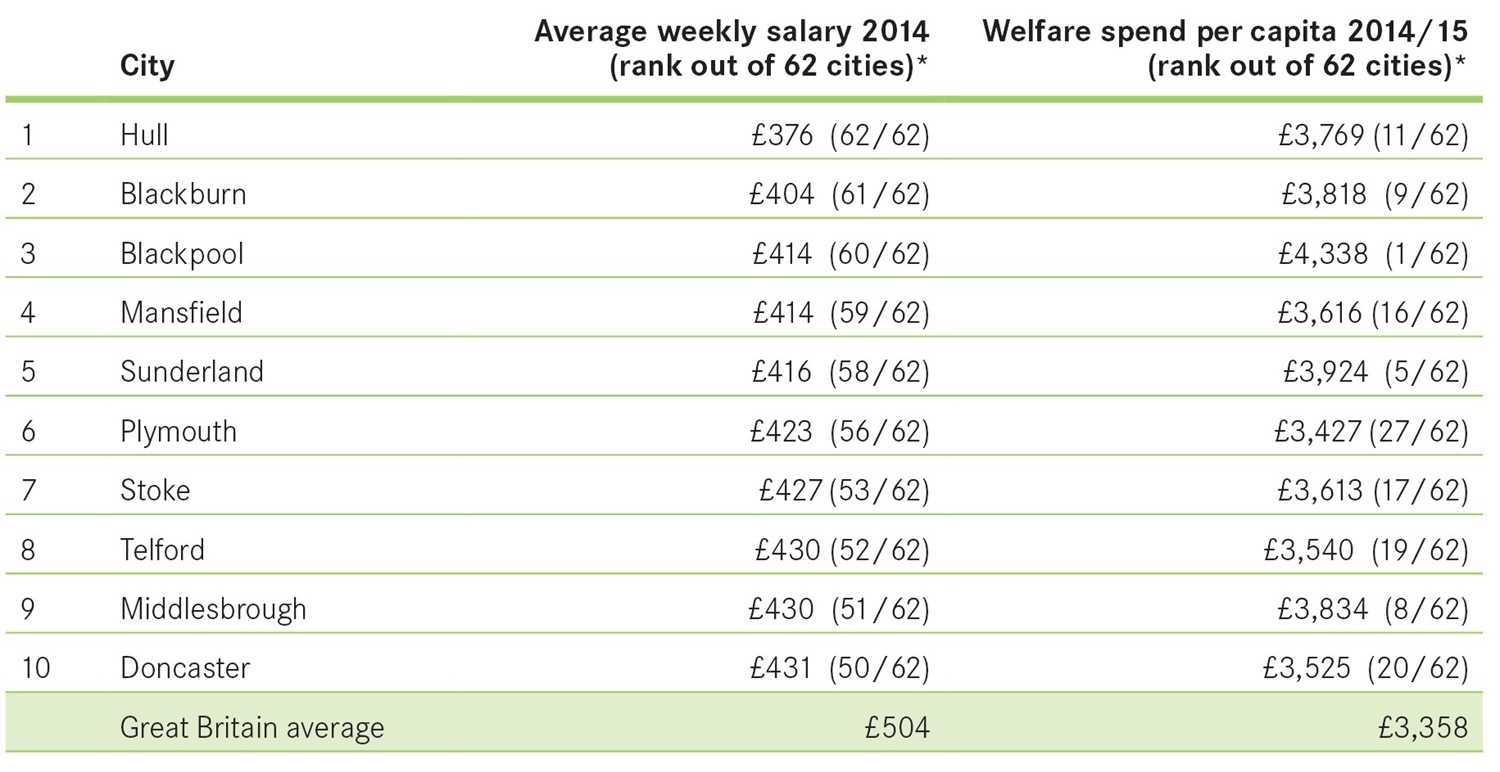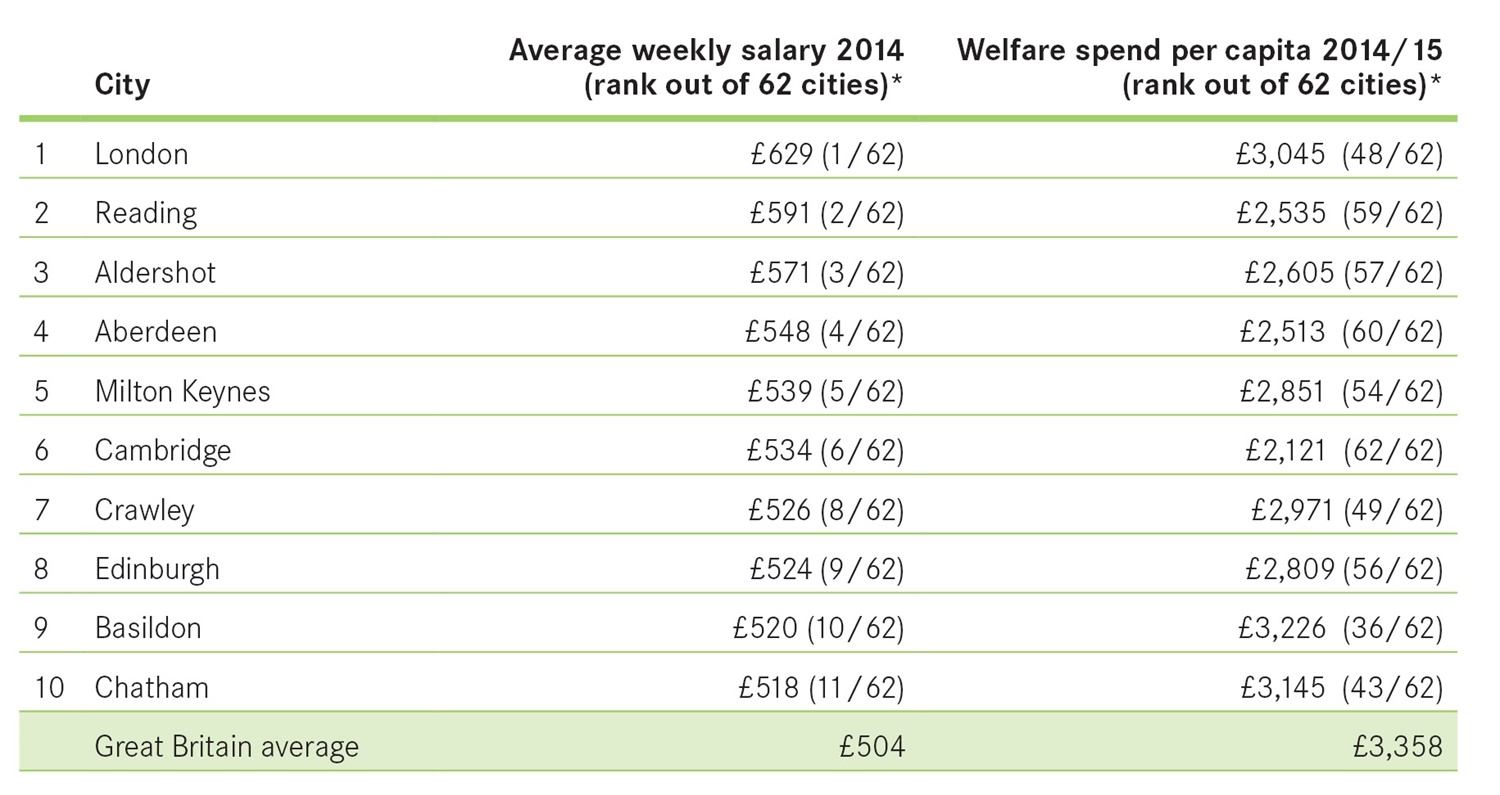25.01.16
Housing crisis undermining ‘low-welfare, high-wage’ vision
The government needs to urgently address the housing crisis if it wants to reduce welfare spending and allow high-wage cities to continue to grow, think tank Centre for Cities has said.
In its annual economy health-check report, Cities Outlook 2016, the think tank found that while cities with high wages have seen faster jobs growth, they have also experienced increases in welfare spending.
This was particularly stark with housing benefit payments, which were more than 50% higher in high-wage cities than in other places, largely due to high demand for housing.
In high-wage places like Milton Keynes and Cambridge, for example, welfare spending has risen by 4% since 2010, while decreasing in low-wage cities such as Liverpool and Glasgow.
The urgent need to address the housing crisis was one of the two major points highlighted in today’s report, with Centre for Cities also identifying a “clear geographical divide” across the country.
Eight of the top 10 ‘high-wage, low-welfare’ cities were situated in the greater south east, while nine of the bottom 10 low-wage cities were across the north or in the Midlands.
The think tank argued the findings emphasised the importance of focusing investment in regional economies through initiatives like the Northern Powerhouse, while continuing to deliver devolved fiscal, infrastructure and housing powers to city-regions.
But its chief executive, Alexandra Jones, said the annual report also highlighted the size of the challenge currently facing Whitehall in fulfilling its chancellor’s vision of a ‘high-wage, low-welfare economy’. The report argued that this will likely have to be the work “not of one Parliament, but of several”.
“One of the most pressing issues is the need to tackle skills-gap and improve schools attainment, especially in low-wage cities, to help those places attract businesses and jobs, and support more people to move into work, particularly in high-skill sector,” she said.
“This should be a key part of the government’s Northern Powerhouse initiative alongside investment in infrastructure, and a top priority for local leaders. For cities which have seen strong growth in wages and jobs, the focus should be on addressing housing shortages, to ensure that their success isn’t derailed by a lack of affordable homes.”
Overall, the health-check report determined that despite the jobs boom between 2010 and 2014, nearly half of UK cities are currently still classified as ‘low-wage, high-welfare’ economies.
Top 10 UK cities with 'low-wage, high-welfare' economies
 Click on the image to enlarge it.
Click on the image to enlarge it.
Just 14 have begun delivering the higher wages and less welfare, which the think tank considered a lesson for national and local policymakers on how they can bolster low-wage cities.
Top 10 UK cities with 'high-wage, low-welfare' economies
 Click on the image to enlarge it.
Click on the image to enlarge it.
Jones continued: “Cities also need more powers and incentives to boost jobs and wages. Giving places control over skills and welfare budgets, and allowing them to keep any savings made by reducing the welfare bill, would incentivise local leaders to invest in employment programmes that, if successful, would reduce people’s need for benefits payments.
“Further devolution would also enable local leaders to make spending decisions which better meet the needs of their communities and give them more incentives to drive economic growth.”
Responding to these claims, a DCLG spokeswoman said the report was out of date, ignoring the latest Office for National Statistics figures “showing the employment rate at a record-breaking 74%, and focuses solely on cities, which takes no account for employment growth in large swaths of the country”.
“In fact, 1.5 million more people are in work outside London and the south-east compared with 2010, a third of new apprenticeship starts in the last year were in the northern powerhouse, and full-time wages grew faster in areas including Greater Manchester, Leeds, Birmingham and Worcestershire compared with the national average – even before our new National Living Wage takes effect in April this year,” she said.